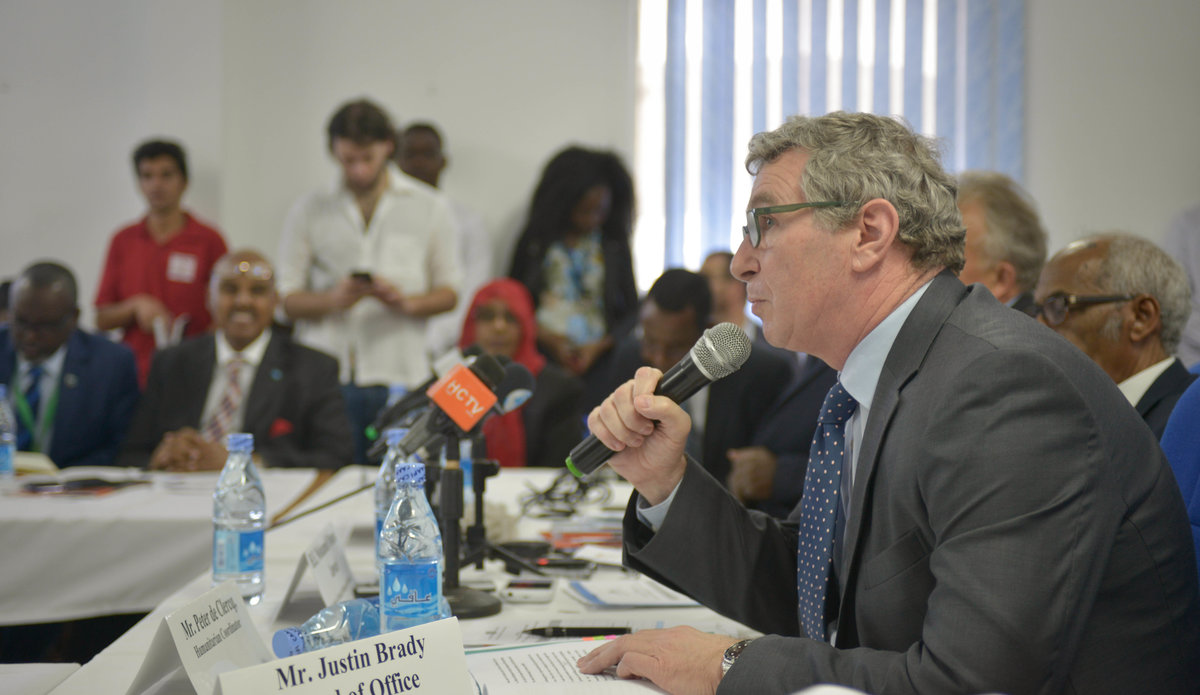UN launches US$864 million humanitarian response plan for Somalia in 2017
The United Nations Office for the Coordination of Humanitarian Affairs (UNOCHA) has launched a US$864 million humanitarian response plan for 2017 that will target an estimated 3.9 million Somalis in need of emergency food assistance.
The plan was launched today in the Somali capital at an event attended by the Speaker of the federal parliament’s House of the People Mohamed Sheikh Osman Jawari, senior representatives of UN agencies and the heads of foreign diplomatic missions in Somalia.
The humanitarian response plan seeks to provide life-saving assistance to vulnerable groups, reduce acute malnutrition, reinforce the protection of displaced persons and promote the restoration of livelihoods.
Peter de Clercq, the Deputy Special Representative of the United Nations Secretary-General for Somalia who is also the UN Resident and Humanitarian Coordinator for Somalia, said the plan outlines priority humanitarian needs and response activities for this year.
“I am therefore reiterating my call to the international community to step up strong support to the people of Somalia,” Mr. de Clercq said.
The humanitarian response plan was launched against the backdrop of a persistent drought that has hit northern and south central parts of Somalia, exacerbating an already precarious food insecurity situation. Sparse rainfall has significantly reduced crop harvests and livestock herds, putting millions of lives at risk.
A report released by the Food Security and Nutrition Analysis Unit and the Famine Early Warning Systems Network warns that increasing numbers of people could face acute food shortages in the coming months.
Five million people are already in need of humanitarian assistance, according to the report. But 3.9 million may actually receive such aid, according to Justin Brady, the Head of the UNOCHA Office in Somalia, owing to funding challenges that limit capacity and security conditions that restrict access to some communities.
Over one million Somalis are facing “crisis” and “emergency” levels of food insecurity, and their numbers are expected to rise to 1.3 million by May of this year.
The report estimates that 320,000 acutely malnourished children need urgent nutrition support, and among them are 50,000 severely malnourished children who require life-saving treatment.
Mr. Jawari represented the Federal Government of Somalia at the event and welcomed the launch of the humanitarian response plan, which he said is in alignment with Somalia’s recently adopted National Development Plan.
“The Federal Government of Somalia is committed to do its level best to ensure a timely and well-coordinated response to the drought. We are working closely with humanitarian organisations and we have already put in place drought response mechanisms,” said the Speaker of the House of the People.
Michael Keating, the Special Representative of the United Nations Secretary-General for Somalia, said the situation will pose a big challenge to the country’s federal government.
“The agenda for the incoming Federal Government of Somalia has to be affected by this crisis. And in some ways, the legitimacy of the incoming Government will in part be viewed by the degree to which it comes to terms with this problem and puts its weight behind solving it,” Mr. Keating stated.
 UN
UN





